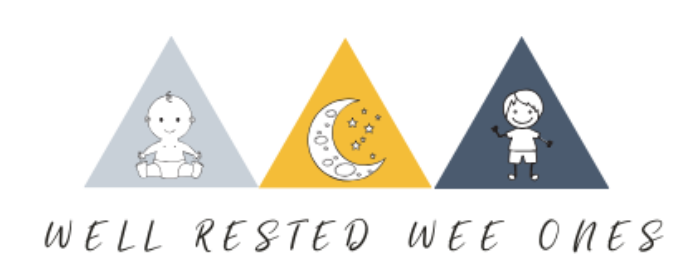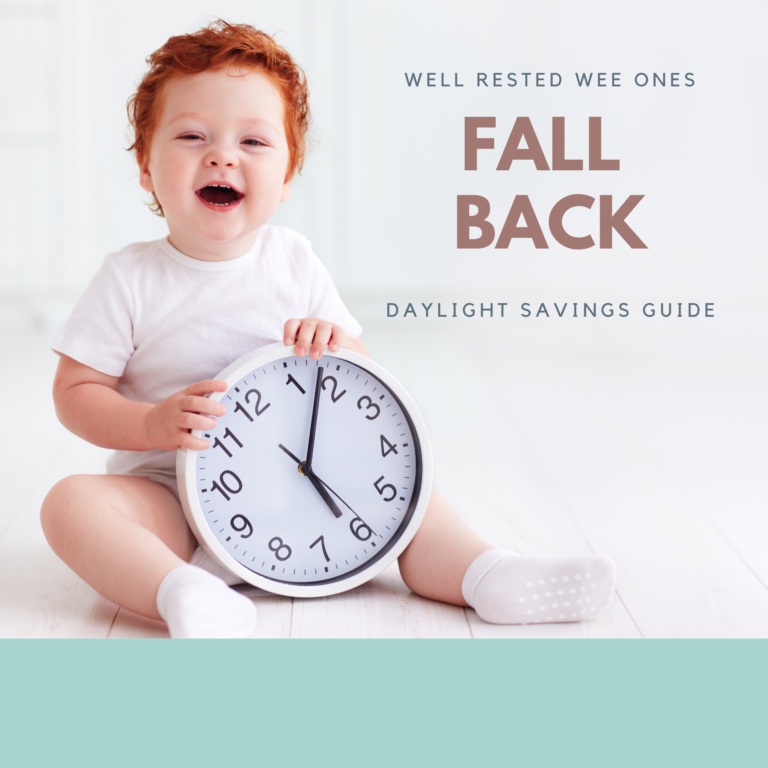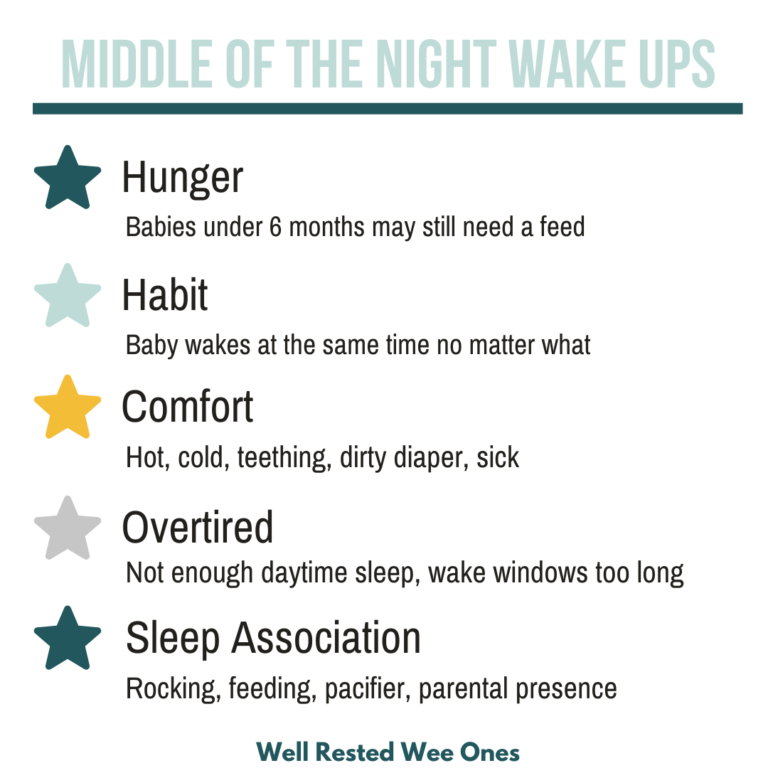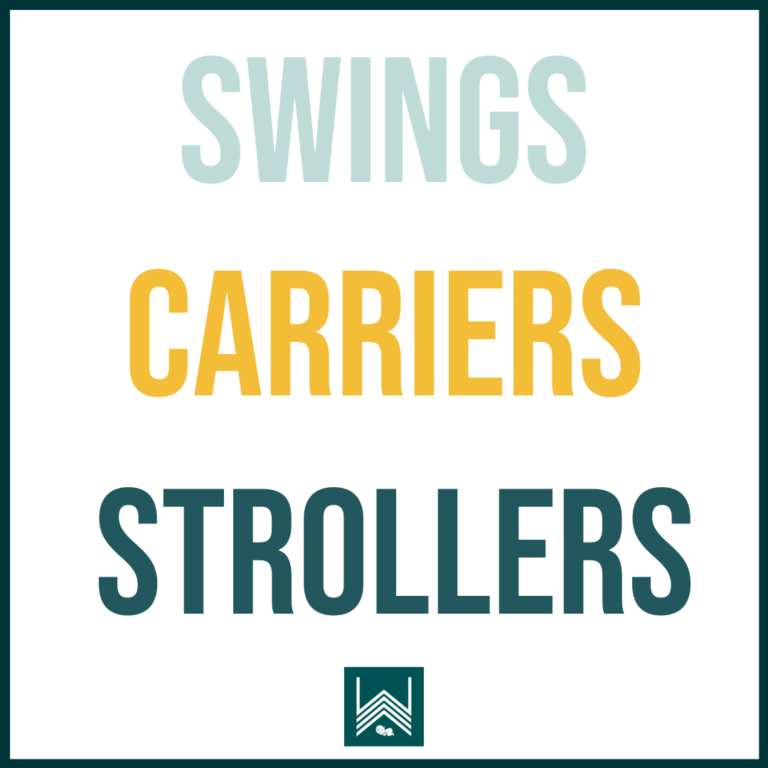When to wake your baby from a nap?
Do you really need to wake your baby from a nap?
We’ve all heard the old saying, “never wake a sleeping baby!” Here at Well Rested Wee Ones, we DO believe in waking your baby from a nap in certain circumstances.
Getting your baby to sleep on a predictable schedule and throughout the night takes diligence, mindfulness, and hard work to help their circadian rhythm align with age-appropriate sleep needs.
While it seems like having a good sleeper takes magic sometimes- there are tricks like waking your baby from a nap that can help you get sleep on the right track.
What is most important in your baby’s daytime sleep schedule:
Parents often ask how they can help their baby’s sleep without official sleep training? The good news is that there are simple things you can do to improve your baby’s sleep without using a sleep training method.
BUT….Anything you do to change or help improve your baby’s sleep is technically sleep training, but not in the sense that most parents think of!
Establishing a desired wake time in the morning
You can start this as early as 2-3 months of age. Starting your baby’s day at the same time every day helps to train their circadian rhythm. Babies are naturally early risers and most will wake between 6-8 AM to start their day. Monitor your baby’s sleep patterns over a week and monitor what time they generally wake for the day. You can then use this time within a 15 minute window to start their day
Follow an eat, play, sleep routine during the day
We recommend starting this routine with your newborn. An eat, play, sleep routine promotes feeding your baby while they are awake and alert, followed by active playtime, and then a nap. This type of routine keeps feeding and sleep separate and also helps parents learn hunger vs sleep cues.
Frequent and Full Feeds during the day
We all wonder when our babies will sleep through the night which also means we get to sleep through the night too. Newborns need to eat overnight, but as your baby gets older they can sleep longer stretches without feeding. Focusing on full feeds during the day helps you get there. Babies that snack feed instead of taking full feeds are more likely to wake overnight to eat.
Follow age-appropriate wake windows and totals for daytime sleep
Your baby can only stay awake for so long before they need a nap! Learning your baby’s sleep cues and following an age appropriate nap schedule will help your baby’s sleep overnight. Too much or not enough daytime sleep will have a direct impact on your baby’s overnight sleep. The Well Rested sleep course includes nap and feeding schedules from 4 to 24 months to help you through every nap transition in the first two years!
when to wake your baby from a nap
- Cap any 1 nap at 2 hours maximum (if your baby is taking two naps or more): This will help ensure your baby gets all of their daytime calories and feeds stay on track. This also ensures there is enough time before the next nap to build sleep pressure to fall asleep. Not giving enough time between naps can lead to a short nap cycle and resistance falling asleep.
- Wake if the nap is going to exceed 4 hours since the last feed: Maximizing daytime calories is so important to help baby sleep well at night. Do not miss a daytime feed because they were sleeping! They will wake overnight to make up for this!
- End the last nap of the day if total daytime sleep is too high: Baby sleep can require math sometimes, especially when your baby is taking multiple naps. If your baby is getting too much daytime sleep it can start to interfere with night sleep and lead to bedtime resistance, long overnight wake ups, and early morning wake ups.
- Your baby needs a full wake window before bed. You will often need to wake your baby from their last nap of the day to preserve bedtime.
Cap last nap to preserve 7pm bedtime
4 naps- Wake from the last nap between 5-5:30pm
3 naps- Wake from the last nap between 4-5pm
2 naps- Wake from the last nap between 3-4 pm
1 nap- Wake by by 3pm
when not to wake your baby from a nap
When your baby is sick they may need a little extra sleep as sleep is the best medicine. You can let them catch up on rest when they are not feeling well or put them down a little early for a nap if they are showing early tired signs. Even when they are sick, you want to be mindful of waking them to ensure they stay well-fed and hydrated.
helpful tip: wake your baby with a sound change
Many sound machines allow the capability of changing the color and sound from the app on your phone. When it is time to wake your baby from a nap, change the white noise to a color/song to help your baby peacefully wake. They will quickly learn what this sound change indicates and know that you are coming soon!
need additional support
If you’re struggling with multiple overnight wake ups, bedtime or nap resistance, or short naps, I have a class for you!
The 4-24 Month Well Rested Collection will walk you step-by-step through a completely customizable sleep training experience. In just a few weeks, your baby will be getting 11-12 hours of independent night sleep, AND you’ll have a plan to navigate any future regressions or bumps in your journey.
I’ll also help you set up a daytime routine and nap schedule that fits your family’s lifestyle and values. And you’ll get age-specific guidance to meet your baby right where he or she is developmentally at every stage from now until your baby turns 2.
Want daily personalized support? We have 1:1 sleep coaching programs to help! We work with your family for 2 weeks to help your baby with both overnight sleep and nap challenges. You don’t have to navigate your sleep journey alone with our Ultimate Sleep Plan.







